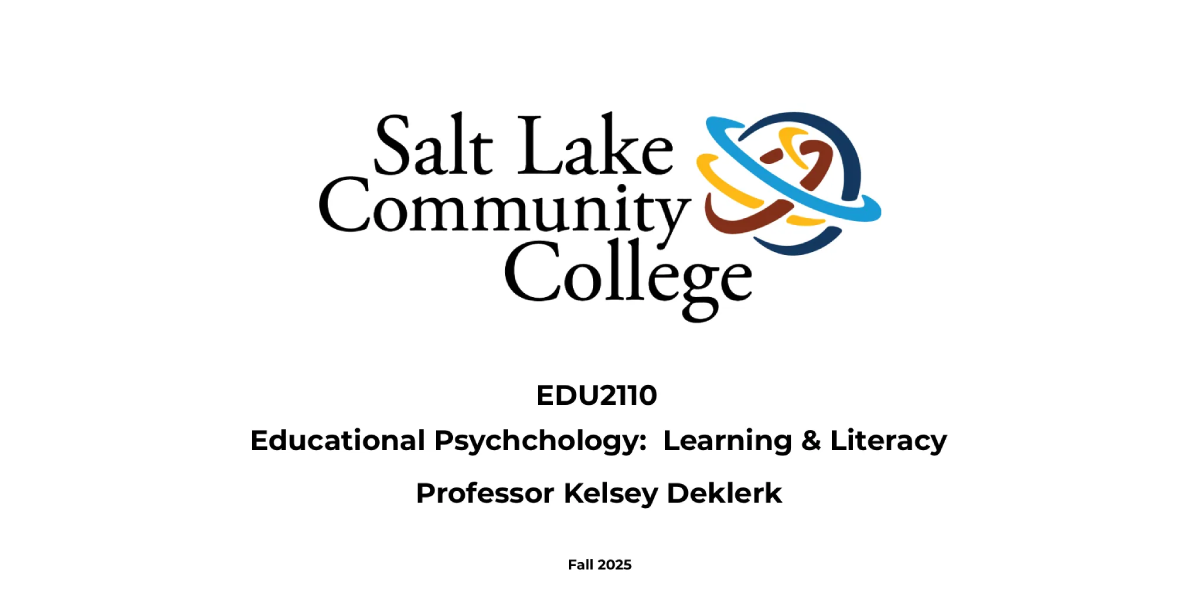Educational Psychology: Learning & Literacy (EDU2110)

Educational Psychology: Learning & Literacy (EDU2110)
📝 Course Description
This course is required for teacher certification. It explores elements that influence the interactions of learning theory, child development, instructional strategies, motivation, critical thinking, self-regulation, and assessment as they address teaching in K-12 classrooms. Development, application, and assessment of learning; how theory guides classroom instruction; how assessments determine instructional effectiveness.
🎯 Expected Outcomes
- Understand historical contexts and current applications of appropriate literacy teaching methods in elementary and secondary schools.
- Understand how to access and interpret the Utah State Office of Education Core Curriculum.
- Demonstrate knowledge and skills necessary to consider how schools, family, and community can be used to connect curricular concepts to students’ prior experience and apply concepts to real-world problems.
- Because classroom teaching and learning connect to life-long human growth and development, students will identify the relation of teaching and learning to the physical, social, cognitive, and emotional development of their students.
- Effectively communicate orally and in writing various facets of literacy instruction, learning, and assessments.
- Effectively articulate the content that they teach and explain how to make ideas specific to that content area accessible to all students.
- Discuss how multiple explanations and instructional strategies will be tied to curriculum content.
- Develop lesson plans for their target teaching assignment.
- Use the college library resources, technology and other media to effectively teach.
- Use and interpret data relevant to educational research and practice.
- Complete classroom video observations and analyze relevant data pertinent to elementary and secondary education.
- Monitor, assess, and analyze student learning, make appropriate adjustments to instruction that could potentially have a positive effect on student learning.
- Understand formal and informal methods for evaluating student progress, be able to prepare and use developmental and age appropriate means of assessment, interpret standardized assessments, and apply the results of assessments to instruction.
- Systematically analyze, synthesize, and/or evaluate personal and societal issues relevant to assessing and teaching elementary and secondary students.
- Be able to critically review thoughts, opinions, biases and beliefs regarding current educational theory and practice in the United States.
- Critically analyze contemporary educational practices, personal cultural and philosophical beliefs, and how these beliefs can impact classroom interaction with students of differing cultures or philosophies.
- Understand the historical and political underpinnings that impact current policies and procedures in elementary and secondary education b. Engage in principled and vigorous dialogue with seasoned educational professionals.
📝 Course Syllabus
Click Here to download a full copy of this course’s syllabus.